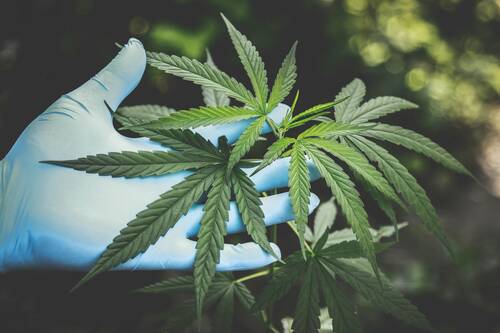
05 Dec CBD May Ease Anxiety With Fewer Risks That Can Come With THC
Editor’ note: Cannabis and THCA/HEMP CBD products should have an active ingredient list on the container and have a Certificate of Analysis (COA).
Discuss your use of CBD products with your health care provider. Dosing of CBD is variable, especially since it is not FDA regulated. CBD may interfere with other medications and should not be used in individuals with certain health conditions, including liver issues. CBD skin care products can be absorbed through the skin and have similar effects.
Do not use Cannabis products including edibles and CBD if you are pregnant, nursing or may become pregnant. Do not use cannabis products if driving or operating difficult or dangerous machinery.
Children should not be exposed to cannabis or CBD products.
Anxiety and other related mental health issues can affect your quality of life. While most over-the-counter medications offer relief, they come with side effects and the risk of addiction. However, over the past few years, CBD has become increasingly popular as a promising solution for treating anxiety.
The studies are still ongoing, and most of the data collected is from anecdotal evidence. Here, we look to explore the CBD world and how it can ease anxiety. The article will also highlight the major differences between CBD and THC.
Understanding THC and CBD
Cannabis contains many compounds, with THC and CBD being the two most popular. Unlike THC, CBD doesn’t provide any psychoactive effects. This means if you smoke CBD flowers, you will not experience the ‘high’ associated with smoking marijuana.
The reason why is that CBD interacts with your endocannabinoid system, which is responsible for regulating physiological processes. As such, CBD will regulate things like pain, sleep, and your mood.
CBD vs. THC for Anxiety
Studies show that both THC and CBD help of alleviate anxiety and stress. However, CBD doesn’t have psychoactive effects, making it a safer pick for people looking for anxiety relief without feeling high.
The other plus of using CBD is the low risk of addiction or dependence. Research shows that regular use of THC can lead to addiction. The risks of overdosing on CBD are also lower than what you will experience if you overdose on THC.
Buying the Right CBD Product
Demand has skyrocketed with the increased popularity of CBD as a leading wellness and recreational product. Many brands are also setting up weed dispensaries, selling a wide range of CBD-related products.
Product quality is a significant factor when purchasing CBD products. The first thing you must insist on is buying from a reputable weed or CBD shop like Cannaflower that offers state certified testing. Most reputable CBD brands and shops will provide third-party lab testing to verify purity and potency.
When it comes to isolate vs. full spectrum, which one should you buy? Full spectrum CBD products pack extra wellness compounds, for example, the terpenes found in cannabis. Isolates contain pure CBD and are more potent.
Dosage and Wellness Tips
There is no one-size-fits-all solution when it comes to CBD dosage. The go-to guide is always to start with a tiny bit and work your way up. The goal is to listen to your body and determine whether you need more.
Consult a medical professional first, especially if you are suffering from mental health-related issues. The health care professional will diagnose you and determine whether you should start using CBD to manage your anxiety. Don’t use CBD products if you are on other medication, pregnant or nursing. Potential risks and harms associated with CBD use include adverse drug interactions, liver toxicity, and reproductive and developmental effects.
Summing Up
There is hope that results from the ongoing studies will cement CBD as a natural solution for anxiety and other related issues. So far, CBD has been shown to ease anxiety with fewer risks that come with THC.
————————
The information on MedicalResearch.com and other sites referenced on this platform, is provided for educational purposes only, and is in no way intended to diagnose, prevent, cure, or treat any medical or other condition.
Some links may be sponsored. Products and services, including those referenced in this post, are not tested, warranted or endorsed.
Always seek the advice of your physician or other qualified health and ask your doctor any questions you may have regarding a medical condition. In addition to all other limitations and disclaimers in this agreement, service provider and its third party providers disclaim any liability or loss in connection with the content provided on this website.
Last Updated on December 5, 2024 by Marie Benz MD FAAD
